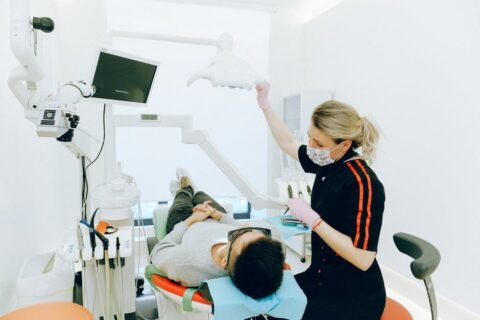Photo by thom masat on Unsplash
The journey through the realm of substance abuse treatment can feel overwhelming for those looking to recover or assist others in their healing process as they encounter a range of choices. Evidence-supported approaches serve as a guiding light by offering proven methods for achieving positive treatment outcomes. This manual explores these approaches in detail, shedding light on their importance and practical application.
Understanding Evidence-Based Practices
Evidence-based practices for substance abuse, founded on research and clinical knowledge, aim to provide care for substance use disorders by incorporating scientific findings along with clinical understanding and patient preferences. This combination helps achieve positive treatment outcomes consistently.
The Role of Cognitive Behavioral Therapy
One of the most effective methods for addressing addiction is Cognitive Behavioral Therapy (CBT). This treatment method centers on recognizing and changing thoughts and behaviors that contribute to the addiction cycle. By teaching individuals effective coping mechanisms, CBT enables them to handle cravings and triggers more effectively. Its flexibility in being applied across various environments and demographics makes it a valuable resource on the journey toward recovery.
Motivational Interviewing: Enhancing Engagement
Motivational Interviewing (MI) is a powerful tool for boosting motivation and commitment to changing behaviors. It fosters self-reflection and readiness for making positive choices through empathetic listening and thoughtful questioning in a patient-centered manner. This approach enhances engagement and empowers individuals to take ownership of their recovery.
Medication-Assisted Treatment: A Comprehensive Approach
Treatment that includes medication, along with counseling, is known as Medication-Assisted Treatment (MAT). This method targets both the mental and physical aspects of addiction by using medications like methadone, buprenorphine, and naltrexone to alleviate withdrawal symptoms and cravings. When combined with therapies, MAT has been proven to significantly enhance treatment outcomes.
The Importance of Support Networks
Recovery goes beyond individual efforts; it flourishes within a caring community atmosphere. Participation in peer support groups, family therapy sessions, and utilizing local community resources helps cultivate a sense of connection. These support networks offer motivation by sharing personal journeys and providing a vital system for maintaining lasting recovery over time.
Integrating Approaches for Holistic Treatment
Integrating various approaches enhances treatment strategies. Practices like mindfulness exercises, yoga sessions, and art therapy promote emotional well-being and build resilience in individuals. Addressing the connection between mind and body effectively provides clients with additional resources to manage stress and avoid recurring issues.
Tailored Treatment Programs
Not every individual responds the same way to treatment methods; personalized plans take into consideration each person’s unique requirements and circumstances. This tailored approach engages individuals more meaningfully in their path to recovery by customizing interventions to meet their specific needs.
Discussing Concurrent Conditions
Many individuals struggling with substance abuse also face concurrent wellness difficulties. It is crucial to acknowledge and address these existing conditions for effective treatment outcomes. Through integrated care approaches that address both addiction and mental health together, individuals can experience improved quality of life and a reduced chance of relapse.
Exploring How Technology Facilitates the Healing Process
The use of technology is becoming increasingly prominent in aiding the healing process, as are healing foods and other techniques. Applications and online support communities are now valuable options for individuals in need of help. These digital resources offer convenience and accessibility, allowing individuals to connect with others and access information easily.
Continuous Adjustment in Treatment Approaches
The field of substance abuse treatment is constantly advancing. Research guides improvements in existing methods and the creation of innovative interventions aimed at enhancing care quality. Staying abreast of the latest trends and evidence-based practices is essential for delivering effective treatment to clients.
Summary
Structured and proven methods play a crucial role in helping individuals effectively and comprehensively deal with substance abuse issues as they journey toward recovery. It is essential for those seeking recovery to incorporate a mix of therapeutic strategies, support systems, and tailored assistance into their healing process. By adopting these validated approaches, we can contribute to the development of more supportive communities. As awareness and understanding expand, the prospect of recovery becomes increasingly attainable for a wide range of individuals.

Daniel J. Morgan is the founder of Invidiata Magazine, a premier publication showcasing luxury living, arts, and culture. With a passion for excellence, Daniel has established the magazine as a beacon of sophistication and refinement, captivating discerning audiences worldwide.





